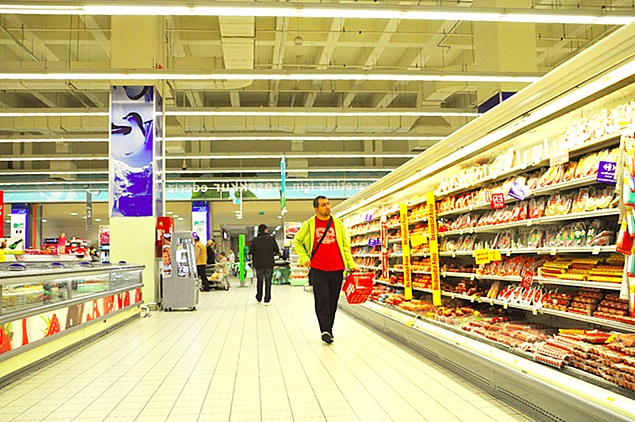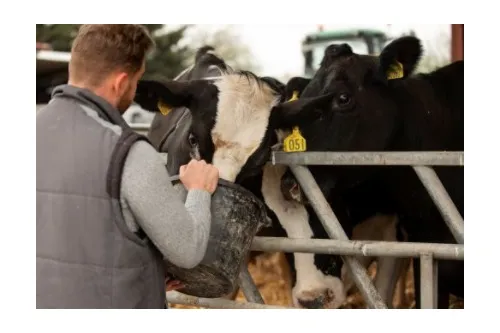1443

Inflation in the world's richest nations has decreased to pre-Russia's large-scale invasion of Ukraine levels and has been declining for 15 consecutive months, reaching 5.3% in February, down from 6.3% in January, according to the latest report by the Organisation for Economic Co-operation and Development (OECD).
A record of insecurity
In 2022, food inflation increased amid reduced trade, higher energy costs, unexpected droughts, and supply chain issues due to COVID-19. The World Food Programme estimated that higher food prices contributed to a record 333 million people experiencing acute food insecurity last year.
However, OECD food inflation in February was reported lower than overall inflation for the first time since November 2021. Total inflation, which remained stable at 5.7% in February, is calculated based on the consumer price index.
Total inflation was below 2% in seven OECD countries and remained negative in Costa Rica. It decreased in three-quarters of the 38 OECD member countries, with the largest monthly declines recorded in Poland and Sweden.
Turkey experienced the most significant increase in general inflation, which experts attribute to a rapid rise in food inflation, mainly due to higher import costs amid a decline in the local currency.
According to OECD data, energy inflation increased but remained moderately negative, at -0.5% in February, despite strong energy inflation in Turkey and Colombia. OECD core inflation (excluding food and energy sectors) continued to decline but remained high at 6.4%.
US and EU Recovery
Inflation declined most sharply in the US and the eurozone as food and energy prices decreased significantly.
"After much of 2021 and 2022 [in the US], food price inflation settled into a more moderate trend of monthly gains of 0.2% in 2023," said Michael Feroli, chief economist at J.P. Morgan, in February. Inflation decreased most significantly in the eurozone and the US as food prices improved.
Cocoa prices have been particularly volatile as El Niño weather patterns inundated the West African growing region with torrential rains, causing production deficits and ripple effects on markets.
In his State of the Union address, President Joe Biden called out brands for using "gouging" tactics to alleviate record cocoa prices amid a cost-of-living crisis.
In the eurozone, annual inflation measured by the Harmonised Index of Consumer Prices decreased to 2.6% in February, down from 2.8% in January. The decline in food inflation was about twice that of the OECD, while core inflation decreased at a similar pace to the OECD.
Post-Brexit Issues
In the UK, food and non-alcoholic beverage prices were slightly below the OECD average in February. However, growth was the slowest since 2022 and below the highest in the past 45 years of 19.2% in March 2023.
Meanwhile, there are growing concerns about potential price hikes and possible supply shortages for certain products due to the UK government's decision to impose post-Brexit tariffs on imports of key food products from the EU at the end of this month, J.P. Morgan expects food deflation in China to end this year.
Food deflation in China
China, not an OECD member, is grappling with food deflation driven by volatile pork prices.
"Many factors have contributed to deflationary pressure in China, including falling global commodity prices, declining food prices, and policy support for supply, rather than demand," said Haibin Zhu, J.P. Morgan's chief economist for China, in February.
"However, we expect deflation to end, but low inflation will persist in 2024."
Meanwhile, Rabobank analysts expect the global poultry market to rebound after a weak second half of 2023 but warn that geopolitical tensions causing distribution challenges will remain an issue. (Photo: Dreamstime)




